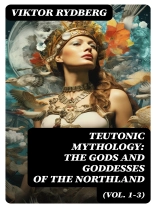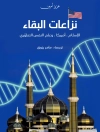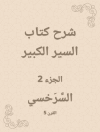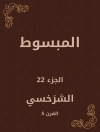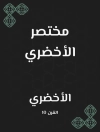Viktor Rydberg’s 'Teutonic Mythology: The Gods and Goddesses of the Northland’ is a monumental exploration of ancient Norse beliefs, woven together in a literary tapestry that blends scholarly rigor with poetic finesse. The three volumes delve into the pantheon of deities, mythological narratives, and cultural practices of the Teutonic peoples, highlighting the interconnections between mythology and the broader historical context of Northern Europe. Rydberg employs a comparative approach, drawing parallels between Norse myths and those from other cultures, paving the way for a nuanced understanding of the enduring legacy of these stories throughout time. Rydberg, a prominent Swedish writer and philosopher of the 19th century, drew on his profound interest in history and folklore, fueled by the Romantic movement’s emphasis on national identity and cultural heritage. His extensive research reflects a desire to resurrect and validate the narratives of his ancestors, positioning them within the larger tapestry of European mythology. This work not only showcases his intellect but also symbolizes a broader cultural renaissance in Sweden, as intellectuals sought to reclaim and preserve their mythic past. For readers fascinated by mythology, history, or the cultural identity of the Norse peoples, Rydberg’s 'Teutonic Mythology’ is an indispensable resource. Its rich analysis and compelling narrative will not only enlighten but also inspire a deeper appreciation for the mythic traditions that shaped Europe’s cultural landscape. This landmark work remains a crucial text for both scholars and enthusiasts seeking to understand the roots of Norse mythology and its lasting impact on contemporary literature and culture.
O autorze
Viktor Rydberg (1828–1895) was a Swedish author, journalist, and an influential contributor to the country’s literary and cultural landscape in the 19th century. A man of considerable intellectual prowess, he was deeply involved in philosophical discourse, historical studies, and was also renowned for his poetic works. Rydberg’s most prominent contribution to the field of literature and mythology is his seminal work 'Teutonic Mythology: The Gods and Goddesses of the Northland’ (1886-1889), which is a profound exploration of Norse heritage and its mythological narratives. This three-volume set is regarded as a comprehensive and scholarly writing on the subject, reflecting Rydberg’s meticulous research and his keen interest in the pre-Christian traditions of Scandinavia. His literary style is marked by a mix of romanticism and realism, and his works often delve into the themes of spiritualism and the quest for truth. Rydberg’s field of inquiry extended beyond mythology, as he wrote novels, poetry, and contributed significantly to the popularization of cultural history. His insights into mythology have left an indelible mark on the understanding of Norse cultural legacies and continue to inspire scholars and enthusiasts of Nordic history and folklore. Rydberg’s legacy as a scholar and a writer is evident in how his works continue to be referenced and respected within academic circles and beyond.
